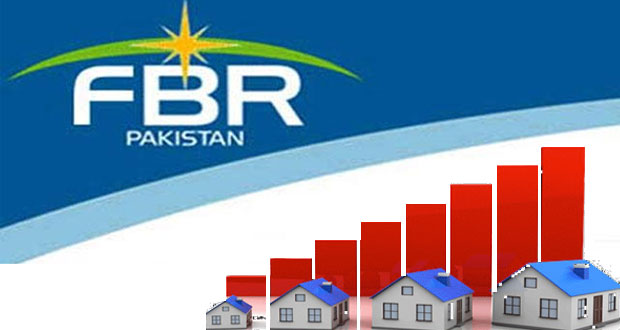ISLAMABAD: The Federal Board of Revenue (FBR), which is unhappy over the tax incentives announced by the government in its recently announced populist budget, is likely to take up the issue with the next government as it failed to convince the present government. According to sources at FBR, the high-ups in the board, after failing to convince the ministry of finance that the incentives will create problems for the board in meeting its revenue targets set by International Monitory Fund (IMF), have decided to take up the matter with the next government and ask to reverse the incentives.
“FBR has major concerns in the budget 2018-19 as whatever the incentive has been announced by the government will definitely reduce revenue. The government, through the new budget, has tried to please salaried persons without considering the implication on overall income tax,” said the sources, adding that the FBR with the tax incentives and without the introduction of a new tax would be in a difficult position.
“Definitely the new government will be requested to review tax measures,” they added. However, experts opine the reversal of such incentives will be difficult for the next government on political grounds.
Though the finance ministry, after realizing the implications of changing the income tax threshold on the total list of taxpayers, has introduced a specific limited tax on various incomes. However, it has not considered the projected fallout in revenue generation.
As per the documents, an unprecedented tax relief was announced in the budget and has been retained in the final papers despite propositions made by some political parties and the upper house to increase the tax rate.
As per the Finance Bill 2018, changes were made in the tax slabs of salaried and non-salaried individuals. The bill has included a provision that all amounts exceeding Rs800,000 be taxed a minimum at Rs2,000. Instead of enjoying zero tax, a nominal sum of Rs1,000 for individuals in the income brackets ranging from Rs400,001 to Rs800,000, and Rs2000 for individuals in income brackets from Rs800,001 to Rs1.2 million has been introduced through the Finance Act, 2018.
As per the changes in the tax slabs, people earning Rs50,000 per month will have a net benefit of Rs6,000, while those earning Rs100,000 will save Rs59,500. In the case of even higher incomes starting from Rs1 million per month, tax liabilities will go down by Rs2 million per annum – a tax break that can go as high as Rs18.8 million if earnings cross Rs8 million per month.
As the finance bill has been passed in the National Assembly on Friday after incorporating proposals provided by lawmakers, the Standing Committees of National Assembly and Senate have also failed to give better proposals and change the bill. The inclusion of major incentives and subsequent approval, experts believe, shows either lesser acceptance of the recommendations of senators and members of the national assembly, or it may also show the uninterested input given on the budget proposals.
“Unfortunately, the members of the Standing Committees have tried to facilitate sectors of their interests by asking the FBR to incorporate their desired amendments. A chairman of the committee had even asked FBR officials for a favour to a specific sector after the committee’s meeting,” said an official at FBR on condition of anonymity.
The government, as per documents of the Finance Act 2018 has agreed to incorporate only over a dozen amendments, proposed by the parliamentary committees in the bill, a majority of which are related to taxes. In the Finance Bill 2018, the government had introduced 104 amendments in income tax, 33 in sales tax and the federal excise duty.
As per the announced popular amendments made in taxes in the budget, the government in the Finance Act has relaxed the condition of being a filer for purchase of vehicles to the import sector. In case of imported vehicles, the restriction will apply on the first registration only. It may be registered to non-filers subsequently. The limitation on the registration of immovable property will be applied to properties having a value of over Rs5 million.
Apart from the incentives to the salaried class, the budget also includes 10 per cent ad hoc relief allowance to the civil and armed forces employees and 10 per cent increase in pension across the board. House rent ceiling and house rent allowance have also been increased by 50 per cent each.
Minimum pension has been increased from the existing Rs6,000 to Rs10,000 considering the difficulties of low paid pensioners while the family pension has also been increased from Rs4,500 to Rs7,500 per month. Minimum pension of pensioners above 75 years of age would be Rs15,000.
The government has also allocated Rs12 billion for the provision of advances to government servants for house building and purchase of transport facility. It has also set aside Rs5 billion for senior officers’ performance allowance, details of which would be announced separately.





Perhaps the FBR officials should first look inward and ensure the overweight tax machinery sincerely tries to expand the tax net rather than sit in their offices happily collecting indirect taxes, harassing taxpayers and compiling bribes for the whole governmental heirarchy.
Thousands of overtly affluent people are freely roaming the streets, eating at expensive restaurants and shuttling through airports without being properly taken to task for not paying their share of taxes.
It can safely be assumed that the vast majority of low and middle income citizens are paying a higher proportion of their income in the form of taxes due to advance tax on mobile cards & internet, GST on packaged food & household items, tax on fuel, utilities, etc., and, in the case of salaried persons on their salaries as well.
How is that even close to being fair or justifiable? The board needs to be disbanded or majorly reformed, there is no other way.